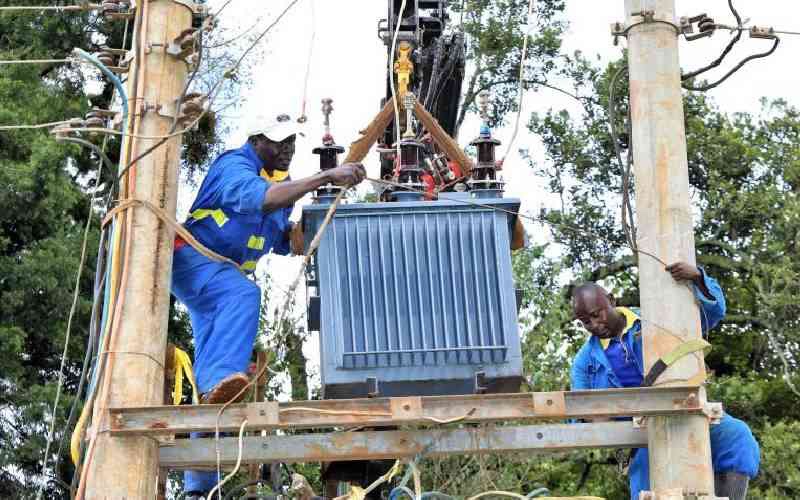There are times you have had that blackout that continues for days because Kenya Power and Lighting Company (KPLC) has disconnected the power.
Well, there is some light at the end of the tunnel. The High Court has ruled that one can sue the corporation for violating your rights such as freedom of expression, as your mobile phone relies on the charge to link you up to the world, and the peace of mind that lights will keep off thugs.
In a case filed by a university lecturer Moni Wekesa, Justice Patrick Otieno dismissed Kenya Power’s objection that he ought to have first lodged his dispute over power switch off with the supplier, then approach the Energy and Petroleum Tribunal if not satisfied
Justice Otieno said Prof Wekesa’s case was not just about the mechanisms to resolve a dispute. Instead, the judge noted, the don’s case surrounds a violation of his freedoms and rights provided in the Constitution
“For that reason, I find the objection not to be entirely merited in so far as the petition seeks the determination of alleged violation of rights and denial of freedoms and the interpretation of the regulations if aligned to the Constitution,” ruled Justice Otieno.
In the case, Wekesa narrated that he owns a home at Navakholo Sub-county, Kakamega County, and is a KPLC customer.
He told the court that with the advent of Covid-19 restrictions, he spent less than three days together with his family at home. This was between January and November 2021.
He said KPLC sent him a Sh14,356 electricity bill and another of Sh3,606 within 24 hours.
Wekesa said he raised a complaint with the energy firm but it fell on deaf ears. His bill issue was not resolved.
On November 2, 2021, he said KPLC again sent him a Sh22,151 bill. The lecturer said he again raised another complaint and pleaded for non-disconnection as the issue was being resolved.
He said Kenya Power employees speedily disconnected the supply nine days later.
Aggrieved, he filed a complaint with the Energy and Petroleum Regulatory Authority (EPRA), seeking restoration of power. EPRA sent the complaint to KPLC.
Wekesa says the disconnection of power exposed his property to thieves.
He asserted that KPLC’s behaviour denied him the right to dignity and exposed him to his relatives and neighbours as a person who is unable to afford electricity bills.
Wekesa claimed that he was treated to psychological anguish, and exposed to fear of attack by wild animals as well as mischievous humans.
According to him, KPLC’s actions denied him basic amenities of modernity such as fridge, freezer and microwave. He also argued that he was denied freedom of expression in that without electricity he could not access internet or interact with the world.
As a lecturer, he said, he was denied the right to exercise artistic creativity and academic activities, including scientific research, as he could not charge his mobile phone and laptop.
Wekesa said Kenya Power also violated his economic interests by levying exorbitant, sporadic and unfortunate bills, leading to denial of electric power supply.
The lecturer wants the court to order KPLC and EPRA to pay him Sh5 million for violating his rights.
When the case was mentioned on May 12 to report on settlement progress, both Wekesa and KPLC told the court they had not resolved anything.
Kenya Power asked the court to strike out the case. It argued that the court had no powers to entertain the case, adding that Wekesa had not exhausted all the dispute resolution channels.
In his reply to the objection, Wekesa said KPLC does not have a dispute resolution mechanism in place and therefore he could not be faulted for approaching the court.
There's no story that cannot be told. We cover the stories that others don't want to be told, we bring you all the news you need. If you have tips, exposes or any story you need to be told bluntly and all queries write to us [email protected] also find us on Telegram

